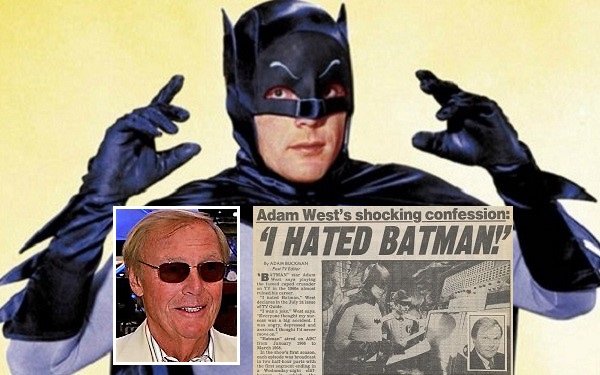
Adam West's death last week served as a reminder
of a TV era when actors came to resent the very shows that made them famous.
It was a process that repeated itself over and over again in the era of just three big networks. Actors and
actresses would come off of a couple of seasons on a popular show and then learn that producers and casting directors were not interested in hiring them for new shows because of the vast exposure they
had just received.
As I understand it, the thinking went like this: The producers believed that every time West would come into a scene -- say, as a
detective, or a doctor, or a sitcom husband -- everybody watching would just see Batman.
Maybe one reason for the acceptance of this way of thinking was that every successful TV show in
that era drew huge audiences, at least as compared with what the top-rated shows attract today.
advertisement
advertisement
In the case of Adam West, there were probably few Americans alive in that era who didn't think
of him as Batman.
Roughly a quarter of the country watched “Batman” in its first phenomenal season, according to my personal copy of Tim Brooks’ and Earle Marsh’s
Complete Directory to Prime Time Network and Cable TV Shows 1946-Present (Eighth edition, published October 2003).
“Batman” premiered in January 1966 on ABC and had two
serialized half-hour episodes per week. Thursday night's episode -- the second of the two -- had a 27 rating to rank fifth out of all prime-time shows for the season (No. 1 was “Bonanza”).
The week’s first episode on Wednesday nights was ranked 10th with a 24.7 rating.
As a first grader in the winter of 1966, I can attest to this show's popularity. It is an important part
of my personal TV history because it stands out in my memory as the first show that my peers and I discussed on the mornings after it aired. On the subject of Batman and Robin's travails and the
colorful villains they faced, interest was keen indeed.
In later years, West admitted that after “Batman,” when offers of acting work were lean, he “hated” the show
(one such story is pictured above, with West).
However, like so many other TV stars from that era, he said he eventually came to embrace the role and the apparent joy it gave people. And it
didn't hurt that appearing all over the place wherever fans of the show were assembled more than paid the bills too.
I never had the opportunity to ask him about this subject. Due to the
randomness with which opportunities to interview TV personalities have come my way over the years, I never crossed paths with Adam West.
Among those who were long rumored to have hated their
most famous roles was Tina Louise, who played “movie star” Ginger Grant on “Gilligan’s Island.” I once asked her about it and she denied it. But it was also true that she
omitted “Gilligan's Island” -- the show for which she was best known – from her resume.
It's possible some of the resentment may have stemmed from the relatively low
pay TV stars received in those days. Not only were their salaries low compared to today's, but almost none of them were able to negotiate for perpetual residual payments in that era.
I once
asked Bob Denver about that, and he was sanguine. When I interviewed him in 1993, he told me he made just $1,200 a week at the height of the popularity of “Gilligan's Island” in the
mid-1960s. Denver was Gilligan, and the show's repeats have never left the air since its first run ended on CBS in 1967.
“There's not a lot of shows that run 30 years,” said
Denver, then 58. “If you knew in ’63, when I signed the deal, that things would run 20, 30 years, and didn't get a deal, then you’d be really upset.”
Denver died in
2005 at age 70. Adam West was 88 when he died last Friday. Denver didn't seem to have a problem embracing Gilligan. On the day I interviewed him in a small conference room in a book publisher's office
in New York, he was carrying one of his Gilligan sailor's caps because he knew how much people loved to see him put it on.
As for West, all indications were that he made his peace with Batman
long ago.